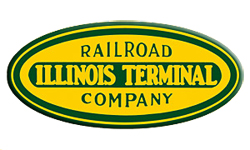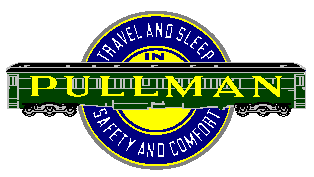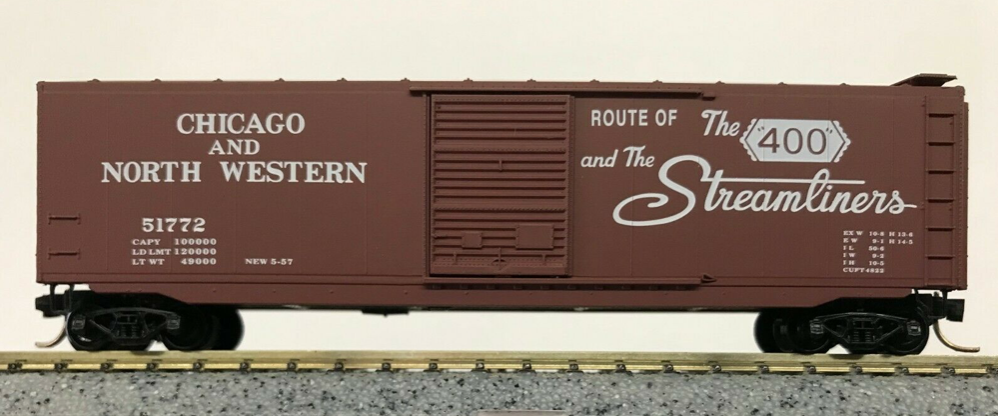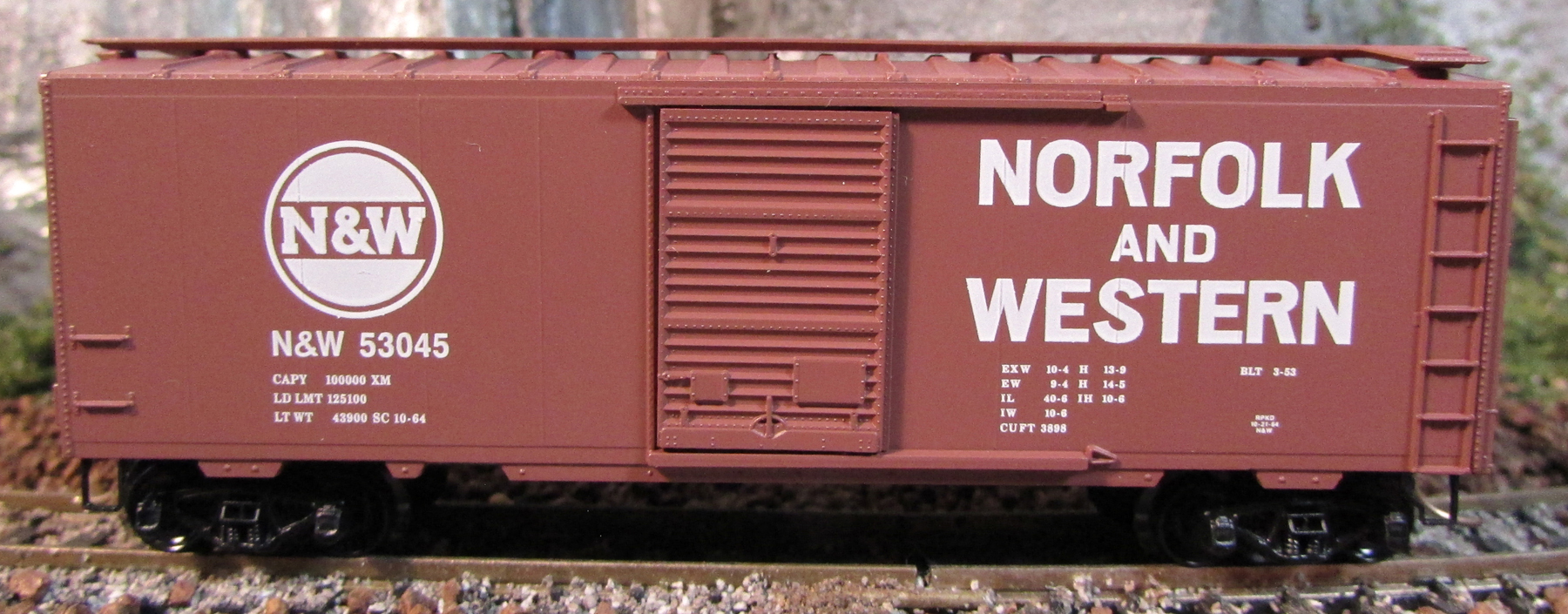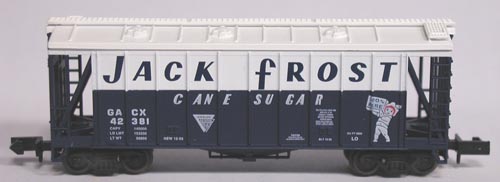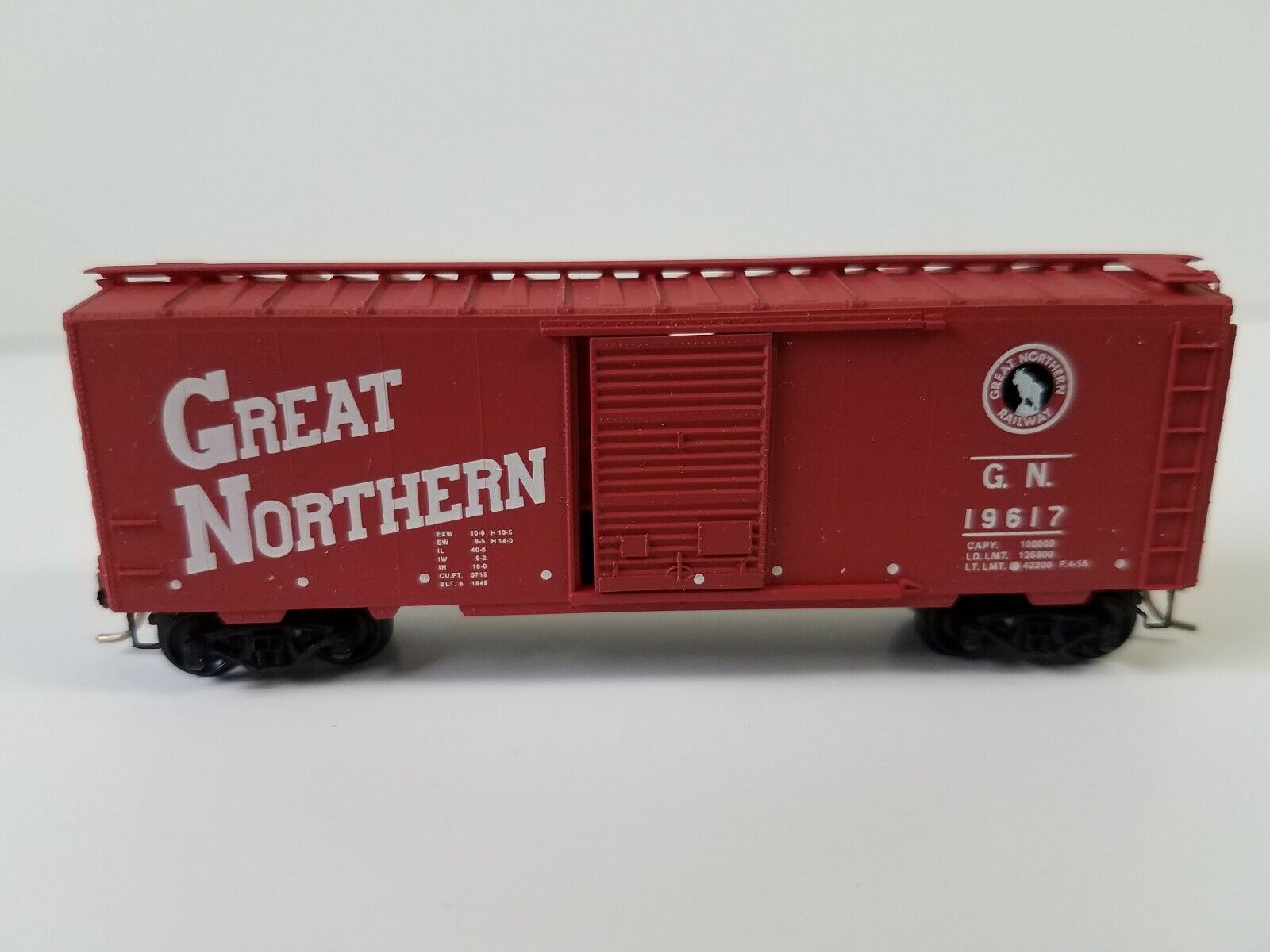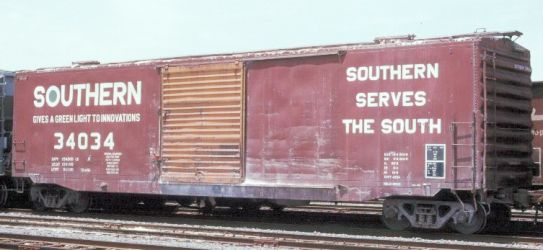Model Information: This model is based on the mid-1960s Pullman Standard 50 foot boxcar prototype. It has a roofwalk and a single sliding door. In 2019, Micro-trains tweaked this model. Newer releases have a lowered underframe and feature body-mount couplers.
Prototype History: The Pullman Standard or PS-1 design was one of the most popular and was widely used by North American railroads. These boxcars were built beginning in 1947 and share the same basic design, with certain elements such as door size, door style or roof type varying among the different railroads and production years. When production of these cars ceased in 1963, over 100,000 had been produced.
The original PS-1 measured 40 foot in length, but Pullman Standard also offered 50′ and later 60′ boxcars – also with the PS-1 designation.
The original PS-1 measured 40 foot in length, but Pullman Standard also offered 50′ and later 60′ boxcars – also with the PS-1 designation.
Road Name History: The Illinois Terminal has one of the most complicated histories for a railroad its size that I’ve ever seen. So without going into too much detail, the IT was established in 1890 when future US President William McKinley bought a streetcar line in the Champaign-Urbana, Illinois area. Within 20 years, he had an electrified interurban passenger and freight system linking Peoria, Bloomington, Danville, Champaign-Urbana, Decatur and Springfield with St. Louis. At its zenith, there was nearly 500 miles of line which included bypasses to keep the freight trains out of the city streets.
In 1904, McKinley went off to Congress and the Illinois Terminal became the Illinois Traction Company until the name reverted in 1937. The interurban passenger operations were significant and outlasted most other Midwestern lines. They were one of only 3 interurban lines in the country to operate sleepers. The principle sleeper route was between Peoria and St. Louis, which had no competition from the local steam roads. At the dawn of the Depression, IT had 124 interurban passenger cars, 22 steam locomotives, and 51 electric freight locomotives.
After the war, passenger service began to wane. By ’56, the intercity passenger service was gone and the last St. Louis area suburban service disappeared two years later. Diesels had begun to arrive in 1950, and by 1955, they had replaced steam and electrics in freight service. The earliest diesels were delivered in black with white trim which was later replaced with variations of bright green and yellow with silver trucks for the remainder of the line’s history.
Now just a hint of IT’s strange corporate machinations: in 1954, the Illinois-Missouri Terminal Railway was incorporated by B&O, C&EI, CB&Q, GM&O, Litchfield & Madison (later C&NW), IC, NKP, Frisco, and Wabash. The I-MT bought the IT 2 years later. The IT was then renamed “Liquidating Terminal” and the I-MT was renamed “Illinois Terminal.” NYC and RI would also buy slices of this IT. This was all for the purpose of providing neutral switching access in the St. Louis - Alton industrial belt for all of the city’s Class 1 carriers. Ironically, a decade before, the IT had been officially named “Liquidating Railway” and “Purchaser Railroad” for the brief period it took to transfer ownership at that time.
By 1980, IT had swapped nearly two thirds of their original mainline trackage for trackage rights on parallel Class 1’s rather than trying to upgrade their own. The freight was handled with 46 diesels with half a dozen SD39’s taking on the heaviest jobs. They also had over 2,600 freight cars. In 1981, the Illinois Terminal was purchased by Norfolk & Western and merged out of existence in 1982.
In 1904, McKinley went off to Congress and the Illinois Terminal became the Illinois Traction Company until the name reverted in 1937. The interurban passenger operations were significant and outlasted most other Midwestern lines. They were one of only 3 interurban lines in the country to operate sleepers. The principle sleeper route was between Peoria and St. Louis, which had no competition from the local steam roads. At the dawn of the Depression, IT had 124 interurban passenger cars, 22 steam locomotives, and 51 electric freight locomotives.
After the war, passenger service began to wane. By ’56, the intercity passenger service was gone and the last St. Louis area suburban service disappeared two years later. Diesels had begun to arrive in 1950, and by 1955, they had replaced steam and electrics in freight service. The earliest diesels were delivered in black with white trim which was later replaced with variations of bright green and yellow with silver trucks for the remainder of the line’s history.
Now just a hint of IT’s strange corporate machinations: in 1954, the Illinois-Missouri Terminal Railway was incorporated by B&O, C&EI, CB&Q, GM&O, Litchfield & Madison (later C&NW), IC, NKP, Frisco, and Wabash. The I-MT bought the IT 2 years later. The IT was then renamed “Liquidating Terminal” and the I-MT was renamed “Illinois Terminal.” NYC and RI would also buy slices of this IT. This was all for the purpose of providing neutral switching access in the St. Louis - Alton industrial belt for all of the city’s Class 1 carriers. Ironically, a decade before, the IT had been officially named “Liquidating Railway” and “Purchaser Railroad” for the brief period it took to transfer ownership at that time.
By 1980, IT had swapped nearly two thirds of their original mainline trackage for trackage rights on parallel Class 1’s rather than trying to upgrade their own. The freight was handled with 46 diesels with half a dozen SD39’s taking on the heaviest jobs. They also had over 2,600 freight cars. In 1981, the Illinois Terminal was purchased by Norfolk & Western and merged out of existence in 1982.
Brand/Importer Information: Micro-Trains is the brand name used by both Kadee Quality Products and Micro-Trains Line. For a history of the relationship between the brand and the two companies, please consult our Micro-Trains Collector's Guide.
Manufacturer Information: 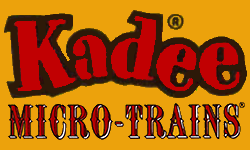 Kadee Quality Products originally got involved in N-Scale by producing a scaled-down version of their successful HO Magne-Matic knuckle coupler system. This coupler was superior to the ubiquitous 'Rapido' style coupler due to two primary factors: superior realistic appearance and the ability to automatically uncouple when stopped over a magnet embedded in a section of track. The success of these couplers in N-Scale quickly translated to the production of trucks, wheels and in 1972 a release of ready-to-run box cars.
Kadee Quality Products originally got involved in N-Scale by producing a scaled-down version of their successful HO Magne-Matic knuckle coupler system. This coupler was superior to the ubiquitous 'Rapido' style coupler due to two primary factors: superior realistic appearance and the ability to automatically uncouple when stopped over a magnet embedded in a section of track. The success of these couplers in N-Scale quickly translated to the production of trucks, wheels and in 1972 a release of ready-to-run box cars.
In October 1990 Kadee separated in two companies, with the newly created Micro-Trains® Line Co. continuing the Z, Nn3, and N Scale product ranges, with Kadee retaining the HO range.

In October 1990 Kadee separated in two companies, with the newly created Micro-Trains® Line Co. continuing the Z, Nn3, and N Scale product ranges, with Kadee retaining the HO range.
Item created by: Lethe on 2015-05-31 17:46:30. Last edited by gdm on 2020-07-24 07:29:25
If you see errors or missing data in this entry, please feel free to log in and edit it. Anyone with a Gmail account can log in instantly.
If you see errors or missing data in this entry, please feel free to log in and edit it. Anyone with a Gmail account can log in instantly.



